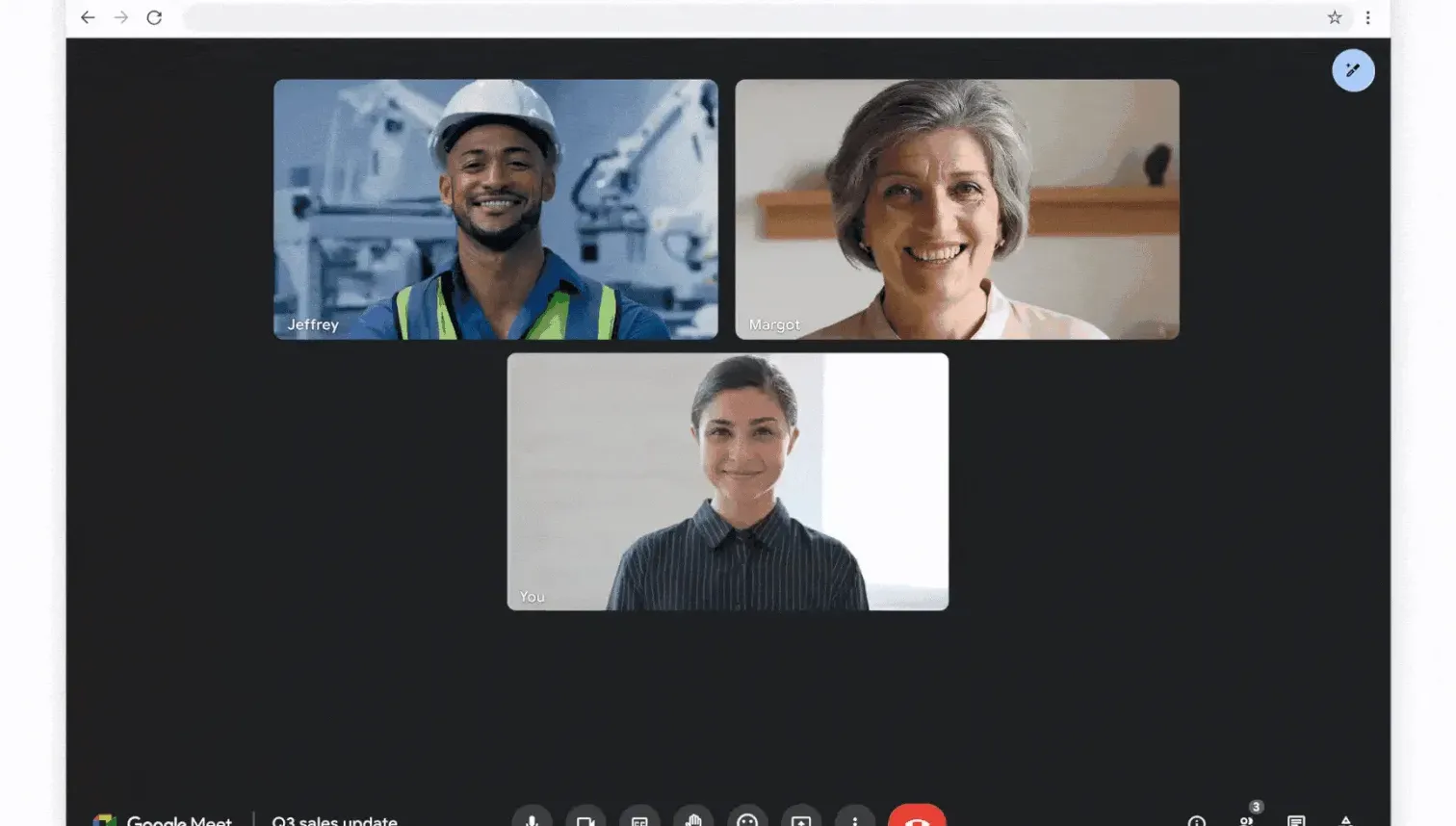Google Workspace Apps to Receive Duet AI Feature, But Pro Subscribers Will Incur Additional Cost
During the I/O event, Google unveiled its ambitious plans for generative artificial intelligence, which involved incorporating the Duet AI virtual assistant into its Workspace productivity apps. Now, Google has begun the gradual implementation of Duet AI for users who subscribe to professional versions of Docs, Gmail, Sheets, and other relevant applications. Additionally, the virtual assistant will soon be available on Google Meet and Google Chat.
Duet AI is a free trial for Google Workspace. However, to use the virtual assistant in cloud-based applications after that, large organizations must pay $30 per month per user, according to The Verge. Microsoft charges the same for 365 AI Copilot in Office apps. Duet AI pricing for small organizations has not yet been finalized.
Duet AI has many tools designed to lighten your workload. You can use it to create an entire email draft in Gmail. It can go through emails and a bunch of documents and spreadsheets to create a summary of recent work (like your company’s quarterly earnings). The assistant can then build a presentation for you based on their findings – but be sure to review the slides to make sure all the facts and figures are correct before you show them to your bosses. And of course, Duet AI can create images as well.
A virtual assistant can also help you on other fronts, including Google Meet and Chat. It has slightly different functionality in Meet, as it can help you “look and sound your best with studio look, studio lighting, and studio audio,” Google Workspace director and vice president Aparna Pappu wrote in a blog post. Duet AI can use facial recognition and dynamic tiles to offer each person in the meeting room their own video screen, perhaps with the goal of making all participants feel more engaged and connected.
Meet can provide translated subtitles for 18 languages. Google says the app can detect when someone is speaking in another language and display the translated text in real time. (By comparison, Zoom has offered live transcription to free users for nearly two years.)
Duet AI’s note-taking functions should also prove useful. The “Take notes for me” feature prompts an assistant to write down action items and capture video clips, then send a summary to participants. If you can’t join the meeting right at the start (or you slept in, we won’t judge), Duet AI can catch you up on what you missed with an unfinished recap.

If you can’t make it to the meeting at all, you can send Duet AI for you. The assistant can relay your score to other participants and still make sure you get a summary afterwards. However, if all participants are using Duet AI as their proxy, Meet seems to be able to detect it and end the meeting.
In addition to all this, the company is also infusing Duet AI into Google Chat. Google is trying to make the app more of a competitor to Slack and Microsoft Teams, which could make sense for organizations that already pay for Workspace for other productivity apps.
You can ask Duet AI questions about discussion topics. Assistant can catch you up on conversations you’ve missed and summarize documents shared by others. Google has updated the Chat interface, adding more shortcuts and an improved search function that includes suggested queries and auto-complete. Autocorrect can also help you avoid typos in your messages. Chat communities can also eventually include up to 500,000 users, while those who need to speak their voices can jump into a Meet-based huddle.
As for privacy, Google says that users’ interactions with Duet AI are private to them. “No other user can see your data, and Google will not use your data to train models without your permission,” Pappu wrote. “Building on these key commitments, we recently announced new capabilities to help prevent cyber threats, provide a more secure workplace with built-in zero trusts, and better support our customers’ digital sovereignty and compliance needs.”
Generative AI tools have had a largely rocky relationship with privacy so far, with some companies reportedly restricting employees from using ChatGPT out of concern that they might accidentally leak proprietary information. Italy also temporarily banned the chatbot for privacy reasons. Just this week, ChatGPT owner OpenAI debuted an Enterprise offering. The company says it doesn’t train its AI models to use the service for Enterprise subscribers — a similar claim to Google’s recent Duet AI.
Google certainly sees Duet AI as a competitor to ChatGPT and Microsoft Copilot. It allows third-party companies to use the underlying technology for other apps, such as the upcoming GE Appliances app that can create recipes based on the food in the fridge (it’s hard to imagine an AI-powered app that would improve my life more than this). Meanwhile, as The Wall Street Journal points out, Google is making its PaLM 2 language learning model more widely available after only granting access to select customers until now.
Google (and Alphabet) CEO Sundar Pichai told the publication that the company will offer Gemini — its direct answer to ChatGPT — to cloud customers when it’s ready for prime time. Google is also expanding its infrastructure to meet the demands of AI operations, but Pichai admitted that the company does not have a crystal ball in this regard. “It’s hard to fully predict demand,” he told the Journal. “I think we’ll be fine, but will it keep me up at night? Yeah.”




